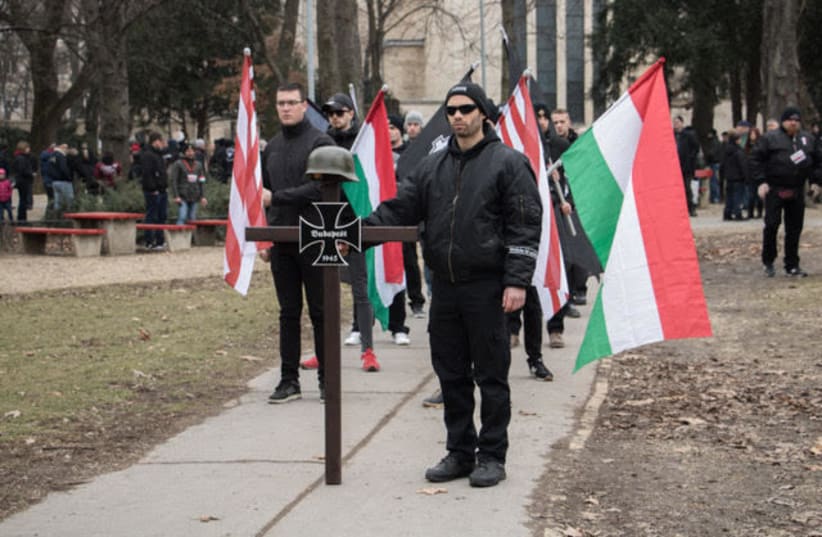Speaking to The Jerusalem Post, Rabbi Zoltan Radnoti, chairman of the rabbinical council of the Mazsihisz Jewish Federation in Hungary, said that such marches are extremely frightening for the Jewish community.“It very much pains us that neither the authorities nor the police did anything to stop this march,” said Radnoti.“Jews do not want to see people dressed in Nazi uniforms,” he continued, saying that there were various legal tools the police could have used to prevent the march. “The government and police must stop these marches. It is not fitting for Budapest, for Hungary, or for a government which says it wants to protect the Jewish Hungarian community, and which says it has zero-tolerance for antisemitism, but allows these marches.”Officials in the Mazsihisz Federation itself, an umbrella organization for the Neolog denomination – somewhat akin to Conservative Judaism – stated that the march was unacceptable, adding that it was “a step down that the Hungarian authorities” permit such demonstrations.“For the Hungarian Jewish community and for the vast majority of Hungarian citizens, it is frightening that Budapest was a place again for neo-Nazi commemoration and march[es],” the organization stated on Monday. “A neo-Nazi demonstration that flames hatred, equipped with SS-skulls [and] marches in formation is unacceptable, whether it is [taking] place at the Városmajor [Park] or at the Buda Castle’s Kapisztran Square.”According to the JFDA German antisemitism watchdog group, there were some 2,800 participants in two marches that took place on Saturday.Three hundred mostly Hungarian far-right activists took part in a march organized by the Blood and Honor neo-Nazi group at the Szell Kalman Square and then laid wreaths at a war memorial in the adjacent park.At the end of a speech by German neo-Nazi activist Matthias Deyda, he referred to Adolf Hitler as the “most famous and greatest German statesman of history,” and cited a quote from the Nazi leader about what would happen if “Our old enemy and adversary tries again to attack us.”According to JFDA, there were also numerous far-right and neo-Nazi participants from other European countries from the German Die Rechte Party, the Swedish Nordic Resistance Movement, “Club 28 Serbia” and the Ukrainian C14 organization, as well as right-wing extremists from Italy and Russia.Later in the afternoon, some 2,500 far-right activists gathered at Kapisztran Square in Budapest Castle and marched to a small town outside of the capital.In a statement on Tuesday, Liberman referred to “a wave of antisemitism” around the world, and pointed to events “in Budapest, capital of Hungary, where neo-Nazi demonstrations take place in which hundreds of people participate and the police don’t lift a finger.”Hunderte deutsche Neonazis beim #TagderEhre: Mehrere tausend Rechtsextreme aus ganz Europa marschierten am Wochenende teils uniformiert, mit Hakenkreuzen und SS-Runen durch #Budapest. Ganzes Video und Artikel: https://t.co/mOhjGKNQzJ #ausbruch60 #dayofhonour #antisemitismus pic.twitter.com/qGA4Lzdrct
— Jüdisches Forum (@JFDA_eV) February 10, 2019
Leading European and Hungarian rabbis condemn neo-Nazi marches in Budapest
Former defense minister Avigdor Liberman condemns Hungarian police ‘for not lifting a finger’ against neo-Nazi demonstration.
